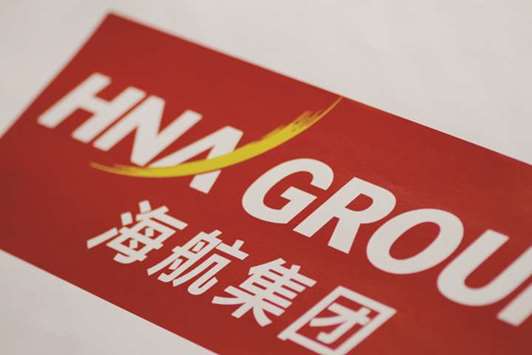The short-term debts of HNA Group’s main offshore fundraising arm are close to outstripping its ability to meet them, according to figures provided in documents for the acquisitive Chinese conglomerate’s most recent bond deal, where the unit paid almost 9% for a one-year loan.
The documents contain figures for the first nine months of 2017, and show that the cash and current assets of HNA Group International Company Limited (HNAI) cover its current liabilities – debts and payments due within a year – with just 8% headroom, down from 26% at the end of 2016.
Current assets include items such as the privately-held group’s inventory and money owed to it.
The so-called current, or working capital, ratio – current assets divided by current liabilities – is a common analyst gauge of a company’s liquidity.
HNA Group declined to comment.
HNA Group’s $50bn worth of deal-making in the past two years has triggered close examination of its sprawling structure and opaque ownership – and of its use of debt to fund an acquisition spree that has included a stake of almost 10% in Deutsche Bank as well as a one-quarter holding in Hilton Hotels.
It also plans to take a majority stake in SkyBridge Holdings, the US hedge fund founded by Anthony Scaramucci, US President Donald Trump’s one-time communications director.
HNA Group typically raises debt through its acquisitions – funding its aircraft-leasing business with bonds issued by that group, for example – which makes it hard to gauge the overall financial health of the group.
HNAI acts as the group’s offshore investment and foreign capital management platform and holds almost $12bn of group assets, according to the documents.
Yesterday it announced the purchase in Australia of Automotive Holdings’ refrigerated logistics business, for 400mn Australian dollars ($304.52mn).
However the numbers presented by HNAI in its bond filing show signs of stress.
Finance costs rose 50% in the first nine months of 2017 from a year ago, according to the document, which showed it has paid HK$1.32bn ($168.99mn) so far this year. The company’s cash balances fell sharply to HK$1.16bn from HK$8.57bn. This month, HNAI accepted a coupon of 8.875% on a $300mn one-year bond – a rate one investor advisor described as “scary high”. The same unit also raised short-term funds by pledging part of its stake in the Spanish hotels group NH Hotels, for a short-term loan to help its internal financing.
The stake was worth €21mn ($24.82mn).
This week, it was revealed that HNA’s Hong Kong-listed subsidiary, HNA Holding – part-owned by the offshore unit – has also asked its banks to extend a $448mn one-year bridge loan due today.
“It is fair to say that liquidity pressure is rising, given that a majority of short-term debt is dependent on bank rollovers,” said one fund manager not authorised to speak with media, who took some comfort in HNA Group’s use of bank loans, which are often easier to refinance than public debt such as bonds. “I would agree this is a highly leveraged company but not a short-term default candidate,” he added. “They also have very liquid assets such as their holding in Deutsche Bank, worth around $4bn, and that can be converted to cash very easily.” The Deutsche Bank stake is held by the main onshore group, not the offshore unit.
In the documents, HNAI listed its key banks and lenders as Guotai Junan Securities, Bank of China, Industrial and Commercial Bank of China, China Construction Bank, China Merchants Securities, Standard Bank, Bank of Communications, the Export-Import Bank of China, Bank of Taiwan, Korea Exchange Bank, and Shanghai Pudong Development Bank. HNA Group, the main onshore holding company which acted as guarantor for the one-year bonds this month, said it “had established good relationships with over 300 domestic and international financial institutions” and named its largest lenders as China Development Bank, the Export-Import Bank of China and China Construction Bank.

HNA Group’s $50bn worth of deal-making in the past two years has triggered close examination of its sprawling structure and opaque ownership u2013 and of its use of debt to fund an acquisition spree that has included a stake of almost 10% in Deutsche Bank as well as a one-quarter holding in Hilton Hotels.
